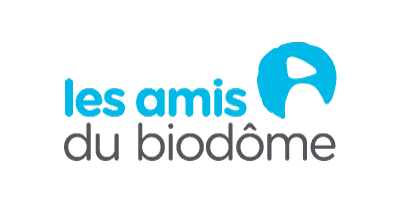FAQ– Cans for corridors !
What is the average cost of planting one tree?
On average, the cost of planting a tree by IPÊ in Brazil is $8.50, the equivalent of 170 cans. This cost includes the production of seedlings, planting and also two years of maintenance and care to guarantee the tree’s survival in the forest.
How many trees have been planted so far?
Thanks to IPÊ and its partners, over 2.7 million trees have already been planted! We will wait until the end of 2021 to announce the number of trees that could be planted with the money collected by the Friends of the Biodôme!
Which species are affected by these “green corridors”?
Although research on the topic has just recently been concluded and results have not yet been published by the Instituto de Pesquisas Ecológicas or IPÊ (Ecological Research Institute), video recorded by on-site cameras show that a number of animals use the green corridors to move around, including certain resident species at the Montréal Biodôme: the capybara, Seba’s short-tailed bat and Pallas’s long-tongued bat, the giant toad, the yacare caiman, the scarlet macaw, the rufous-collared sparrow, the turkey vulture, the blue-crowned motmot, the white-faced whistling duck, the wattled jacana, the saffron finch, the burnished-buff tanager and the blue dacnis. The results of the research conducted by IPÊ will soon tell us more!
Why aluminum?
Aluminum, although infinitely recyclable, has a negative impact on the environment. This metal is extracted from alumina, which comes from bauxite ore. The bauxite mining industry directly affects the deforestation of countries where it is produced. As a matter of fact, Brazil is the world’s fourth-largest producer of bauxite.
By choosing to return our aluminum cans using the deposit system, we are ensuring that they will be 100% recycled. With the deposit, the recycled material is of better quality since it is sorted directly at the source, therefore requiring less sorting by the conditioner. There is also less undesirable residual material and breakage, while ensuring a better resale price. This results in cleaner and more efficient recycling. Furthermore, by recycling our cans, we are contributing to reducing the primary production¹ and increasing the secondary production, therefore encouraging the recycling of cans while reducing the environmental impacts of producing aluminum.
Did you know that one can made using recycled aluminum consumes 95% less energy than one can made using non-recycled aluminum?
¹ Primary production is a polluting process through which new aluminum is made whereas secondary production is a process requiring 95% less energy.
For more information:
- https://ceal-aluquebec.com/recyclage-aluminium/
- https://www.consignaction.ca/
- https://www.consignaction.ca/des-pertes-environnementales-et-monetaires/
- https://www.consignaction.ca/les-autres-avantages-de-la-consigne/
- https://www.rncan.gc.ca/nos-ressources-naturelles/mineraux-exploitation-miniere/faits-sur-les-mineraux-les-metau/faits-sur-laluminium/20568
- https://www.nature.com/articles/s41467-017-00557-w
Why not fund a project right here in Québec?
Projects to support Québec ecosystems are currently being developed by the Friends of the Biodôme.













